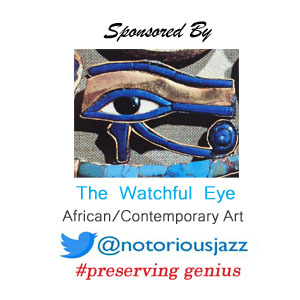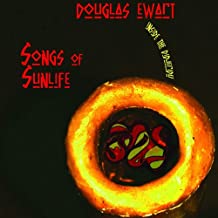
Daily Dose Of Jazz…
Douglas Ewart was born on September 13, 1946 in Kingston, Jamaica and emigrated to the United States in 1963. Settling in Chicago, Illinois he became associated with the Association for the Advancement of Creative Musicians (AACM) in 1967, studying with Joseph Jarman and Roscoe Mitchell. He served as that organization’s president from 1979 to 1986.
Douglas recorded eight albums as a leader and has performed or recorded fifteen with J. D. Parran, Muhal Richard Abrams, Art Ensemble of Chicago, Anthony Braxton, Alvin Curran, Anthony Davis, Robert Dick, Von Freeman, Joseph Jarman, Amina Claudine Myers, Roscoe Mitchell, James Newton, Rufus Reid, Wadada Leo Smith, Cecil Taylor, Richard Teitelbaum, Henry Threadgill, Hamid Drake, Don Byron, Malachi Favors Maghostut, Muhal Richard Abrams, Spencer Barefield, Tani Tabbal, Jean-Luc Cappozzo, Joëlle Léandre, Bernard Santacruz, Michael Zerang, Chico Freeman, Dennis González, Yusef Lateef, Adam Rudolph,
In 1992 he collaborated with Canadian artist Stan Douglas on the video installation Hors-champs which was featured at Documenta 9 in Kassel, Germany. The installation features Ewart in improvisation of Albert Ayler’s Spirits Rejoice with musicians George Lewis, Kent Carter, and Oliver Johnson.
Douglas Ewart has lived in Minneapolis, Minnesota since 1990 and plays sopranino and alto saxophones, clarinets, bassoon, flute, bamboo flutes, panpipes, and didgeridoo; as well as Rastafarian hand drums.
More Posts: bamboo flute,bassoon,clarinet,didgeridoo,flute,hand drums,history,instrumental,jazz,music,panpipe,saxophone
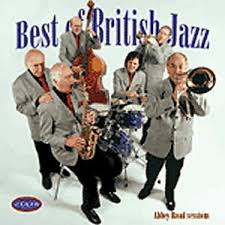
Daily Dose Of Jazz…
Roy Willox was born August 31, 1929 in Welwyn, Hertfordshire, England into a musical family in 1929. At 16 he initially played with Johnny Claes for a short time in 1945 and then worked in other well-known bands before joining the Ted Heath Orchestra for a five-year stint from 1950 to 1955. During this time he also worked in a band with Keith Christie.
A collaboration with Jack Parnell and other bands led to extensive freelance in television, radio and theater. In the field of jazz, he was part of Harry South’s band in the 1960s and 1970s. This period of performing saw him occasionally returning to the Heath band throughout the 1990s and 2000s, playing the Ted Heath Bands farewell concert at London’s Royal Festival Hall in 2000.
In his later years Roy worked with Kenny Baker, the Robert Farnon Orchestra, and Laurie Johnson’s London Big Band. 2009 with the all-star formation The Allan Ganley Jazz Legacy. He was involved in 156 jazz recording sessions between 1951 and 2016 with Cleo Laine, Larry Page, George Chisholm, Beryl Bryden, Johnny Keating, Tubby Hayes, Kenny Clare, Dudley Moore, Louie Bellson, The London Jazz Chamber Group, Michel Legrand, Phil Woods, and the Len Phillips Big Band.
As a session musician, he is also in pictures of Bert Kaempfert, Tiny Tim ~ Live! At the Royal Albert Hall, and Harry Nilsson ~ A Little Touch of Schmilsson in the Night. Alto saxophonist Roy Willox, who also plays clarinet and flute, passed away on November 25, 2019.
More Posts: clarinet,flute,history,instrumental,jazz,music,saxophone
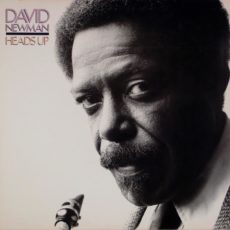
Requisites
Heads Up ~ David Newman | By Eddie Carter
Up next from the library is an album by the flutist, alto, and tenor saxophonist, David Newman. Heads Up (Atlantic 81725-1) finds him leading a first-rate quintet with Kirk Lightsey on piano; Steve Nelson on vibraphone; David Williams on bass and Eddie Gladden on drums. My copy used in this report is the original 1987 Stereo release.
Ain’t Misbehavin’ by Fats Waller, Harry Brooks and Andy Razaf starts Side One at a slow ballad tempo. The song premiered at the Harlem club Connie’s Inn and was the opening tune for the 1929 all-black musical revue, Hot Chocolates. The show was so successful it ran on Broadway for 219 performances, and Louis Armstrong performed the first instrumental version during the intermission. Kirk opens with a tender introduction that gently grows into David’s seductive melody. Newman also delivers a beautiful work of richness and sincerity on the lead solo. Kirk and Steve split the next few verses, each man offering a romantic sensitivity before a pretty closing chorus.
Makin’ Whoopee is by Walter Donaldson and Gus Kahn, first appearing in the 1928 Broadway musical Whoopee, the song was sung by Eddie Cantor who reprised it two years later in the 1930 film. The quintet proceeds smoothly from the introduction to the opening chorus led by Newman who also casts a distinct voice with expressive beauty on the first reading. Nelson also gives an enticing presentation on the second solo. Williams is as sweet as honey on the third statement with an exquisite tone and Lightsey makes the final statement a delightfully nostalgic performance into the coda. Newman’s Heads Up comes at you next vivaciously with David taking off first with a rocking beat compelling one to snap their fingers and tap their toes. Steve conveys a festive celebration on the second reading, then Kirk dazzles with the vigorous zest of a sanctified church service. David sums everything up with a few short comments leading to the group’s finale.
Newman opens Side Two on flute for an upbeat rendition of Delilah by Victor Young. It’s a catchy 1954 tune with the quintet producing a vibrant melody. David’s opening solo is delivered with abundant spirit and energy. Kirk steps up next with driving ambition, then Nelson takes the final bow with driving ambition and dexterity. Lover Man by Jimmy Davis, Roger Ramirez, and Jimmy Sherman slows the pace with the leader back on tenor sax. After the ensemble’s ravishingly beautiful theme, David demonstrates his rhythmic mastery with grace and elegance. Kirk etches a delicately thoughtful presentation next, then Steve follows with an amorously tender interpretation. Newman closes with a few sultry comments before the warm-hearted ending. For Buster, David’s second original closes the album with the leader on alto-sax expressing a down-home blues flavor. Newman and Nelson are the featured soloists and each man offers an interpretation eminently fitting for the blues into David’s earthy reprise and climax.
Heads Up was engineered by Tony May whose work has appeared on many Jazz, Latin, Pop, and Soul albums. His assistant Ira McLaughlin has worked on albums for Atlantic, CBS, and Profile Records. This album was digitally recorded and has a highly effective soundstage placing the musicians in the center of your listening room. David Newman who the jazz world would come to know as “Fathead” originally worked with Ray Charles and had a prolific career recording albums of Hard-Bop, Post-Bop, Soul-Jazz, Jazz-Funk, and Jazz-Fusion for another twenty-one years after Heads Up was released. He passed away at the age of seventy-five on January 20, 2009, from pancreatic cancer. If you’re seeking an album displaying his skills as a composer and multi-instrumentalist, consider this your Heads Up!
~ Ain’t Misbehavin’, Lover Man, Makin’ Whoopee – Source: JazzStandards.com ~ © 2020 by Edward Thomas Carter SynopsisHeads Up is an album by saxophonist David Newman recorded at the Atlantic Recording Studios in New York City on September 16~18, 1986 and released in 1987 on the Atlantic Records label.
Track List | 37:55
- Ain’t Misbehavin’ (Fats Waller, Andy Razaf) 7:40
- Makin’ Whoopee (Walter Donaldson, Gus Kahn) 8:24
- Heads Up (David Newman) 6:21
- Delilah (Clifford Brown) 7:22
- Lover Man (Jimmy Davis, Ram Ramirez, James Sherman) 9:52
- For Buster” (Newman) :41
- David Newman – tenor saxophone, flute
- Steve Nelson – vibraphone
- Kirk Lightsey – piano
- David Williams – bass
- Eddie Gladden – drums
More Posts: choice,classic,collectible,collector,flute,history,instrumental,jazz,music,saxophone
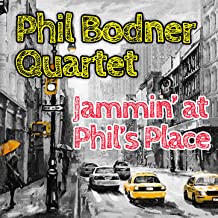
Daily Dose Of Jazz…
Philip L. Bodner was born June 13, 1917 in Waterbury, Connecticut and played in the Forties and 1950s as a sideman for studio recordings in New York City. He played on jazz sessions with Benny Goodman, with Miles Davis and Gil Evans in 1958.
Organizing The Brass Ring, a group modeled after Herb Alpert, in the mid-1960s they had popular success. Bodner also played with Oliver Nelson and J.J. Johnson during that decade. His associations in the 1970s included Oscar Peterson, Yusef Lateef, Peanuts Hucko, Wild Bill Davison, Ralph Sutton and he also played the signature piccolo part on the disco hit The Hustle by Van McCoy. Other work in the 1970s included playing with Ralph Sutton and Johnny Varro, working with Mingus Epitaph, and arranging Louie Bellson’s tribute to Duke Ellington’s Black, Brown and Beige.
The 1980s saw him working in a swing style with Marty Napoleon, Mel Lewis, George Duvivier, Maxine Sullivan, and Barbara Carroll. He released an album under his own name, Jammin’ at Phil’s Place, on Jazzmania Records in 1990, with Milt Hinton, Bobby Rosengarden, and Derek Smith as sidemen.
Multi-instrumentalist and studio musician Philip Bodner, active in jazz and popular music idioms. Best known as a reedist, he played clarinet, saxophone, oboe, English horn, piccolo, flute, conductor and arranger passed away on February 24, 2008 at age 90 in New York City.
More Posts: clarinet,english horn,flute,history,instrumental,jazz,music,oboe,piccolo,saxophone
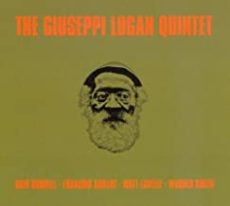
Daily Dose Of Jazz…
Giuseppi Logan was born on May 22, 1935 in Philadelphia, Pennsylvania, who taught himself to play piano and drums before switching to reeds at the age of 12. At the age of 15 he began playing with Earl Bostic and later studied at the New England Conservatory. In 1964 he relocated to New York and became active in the free jazz scene.
Giuseppi played alto and tenor saxophone, bass clarinet, flute, piano and oboe. He collaborated with Archie Shepp, Pharoah Sanders and Bill Dixon before forming his own quartet made up of pianist Don Pullen, bassist Eddie Gómez and percussionist Milford Graves. After Pullen’s departure, pianist Dave Burrell joined the group. A member of Byard Lancaster’s band, he also toured with and appeared on recordings by Patty Waters. He recorded two albums for the ESP-Disk record label and later appeared on an album by Roswell Rudd on the Impulse! label.
Beset with personal problems, Logan vanished from the music scene in the early 1970s and for over three decades his whereabouts were unknown. In 2008 he was filmed by a Christian mission group just after he had returned to New York City after years in and out of institutions in the Carolinas. Around this same time filmmaker Suzannah Troy made the first of many short films of Logan practicing in his preferred hangout, Tompkins Square Park. Subsequently, he was the subject of a major piece by Pete Gershon in the spring 2009 edition of Signal to Noise Magazine, which detailed the events surrounding Logan’s “comeback” gig at the Bowery Poetry Club in 2009.
The same year he performed with a group in NYC as part of the RUCMA performance series. Later in the year he appeared in the short documentary film Water in the Boat by David Gutiérrez Camps, where his music improvisations formed the soundtrack of the film. In 2010 Giuseppi began recording again and released an album announcing his return to music on Tompkins Square Records with Matt Lavelle, Dave Burrell, Warren Smith and Francois Grillot. This group performed a concert in Philadelphia with Dave Miller playing for Warren Smith at the Ars Nova Workshop. He went on to record six songs with a group of younger experimental musicians.
Around 2011 he was shot and ended up in a home in Far Rockaway, Queens. Still living in New York and performing as a street musician, reedist Giuseppi Logan passed on April 17, 2020 at a nursing facility in Far Rockaway, Queens from COVID-19.
More Posts: bandleader,clarinet,flute,history,instrumental,jazz,music,oboe,piano,saxophone





